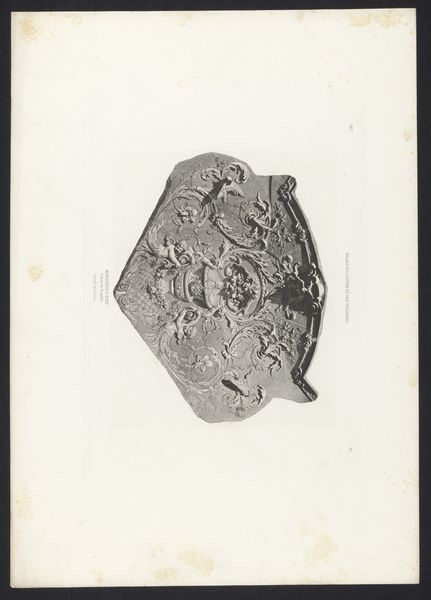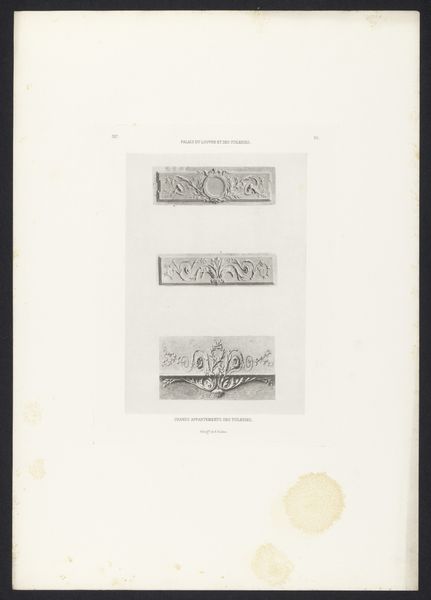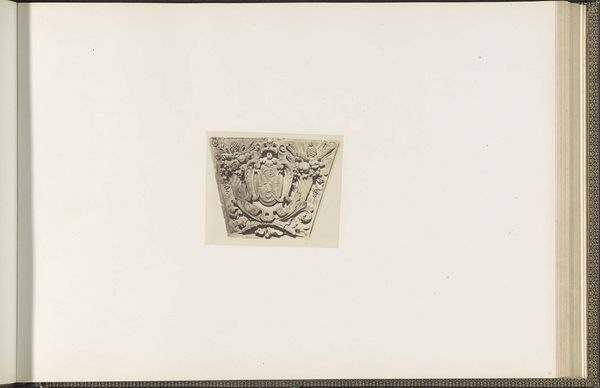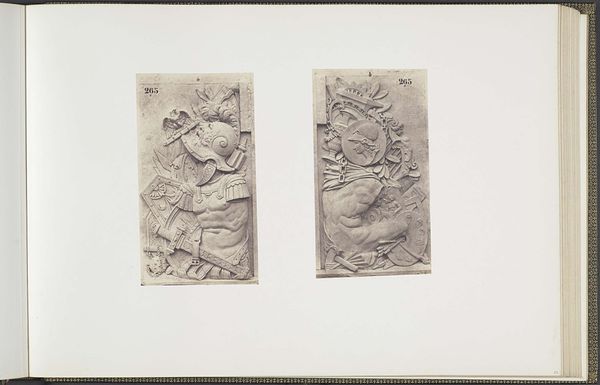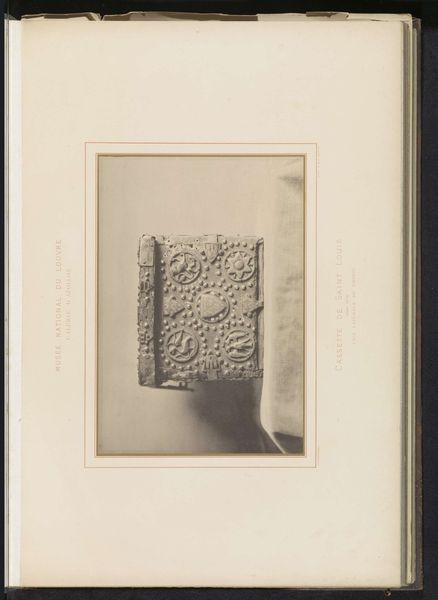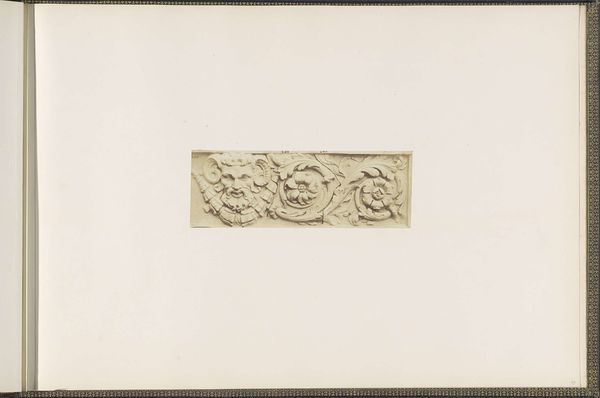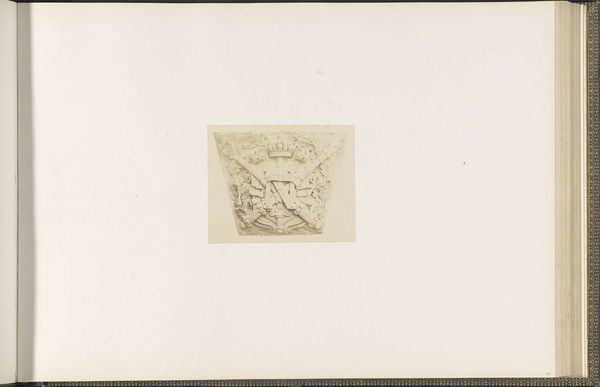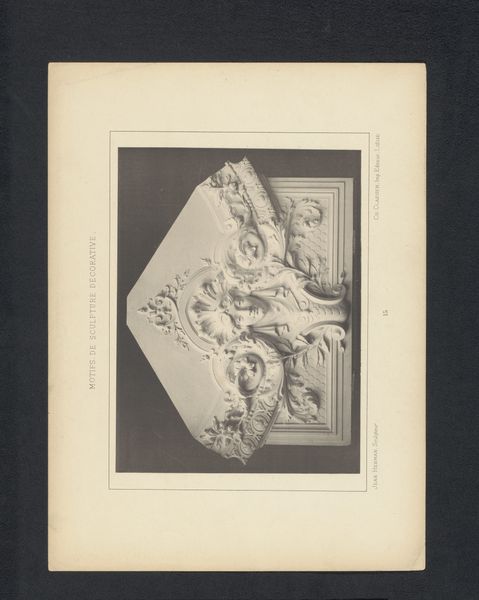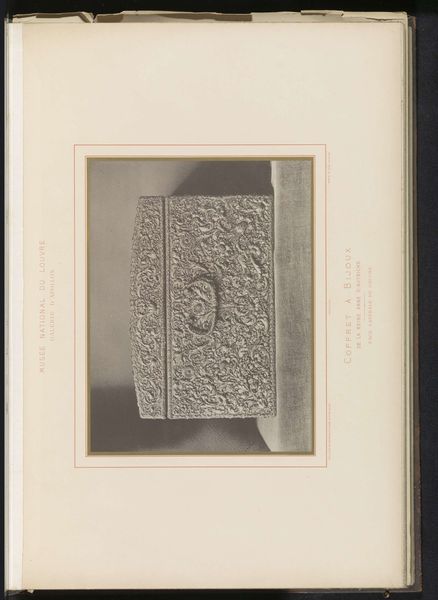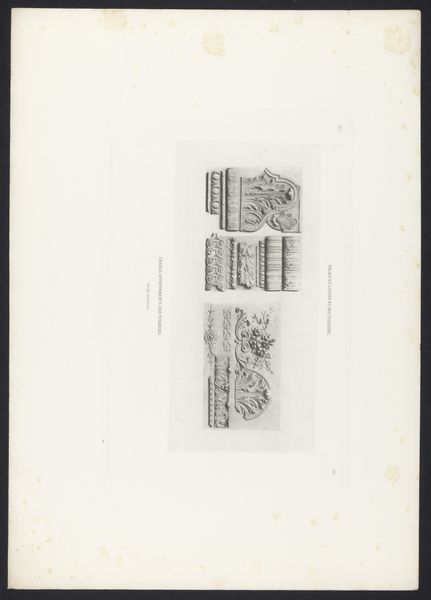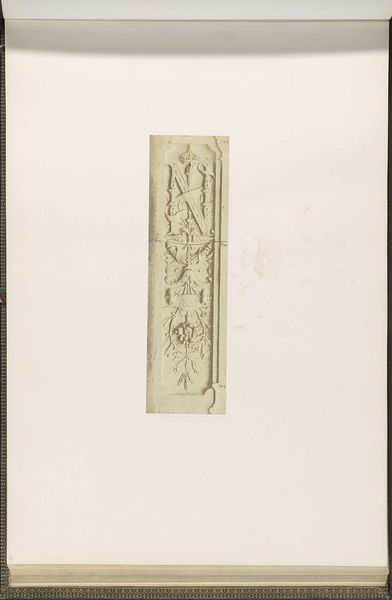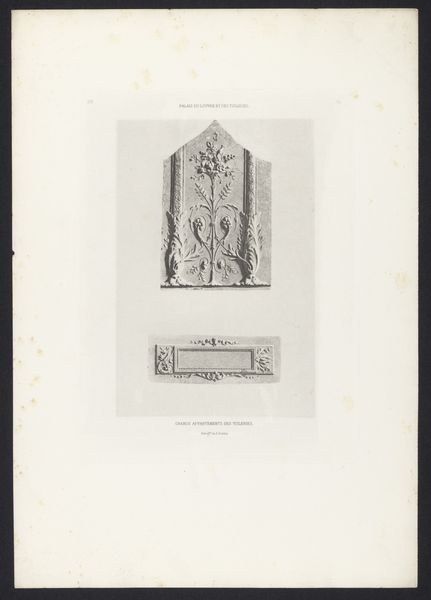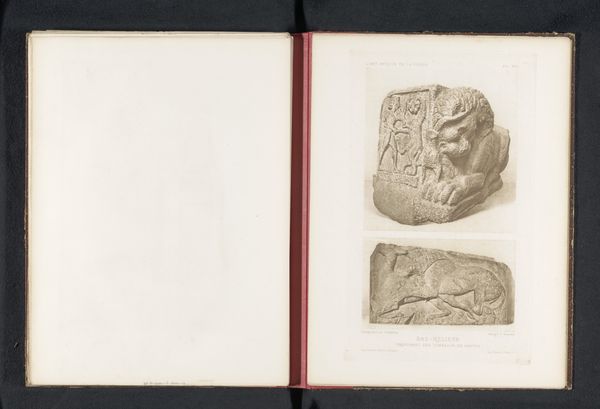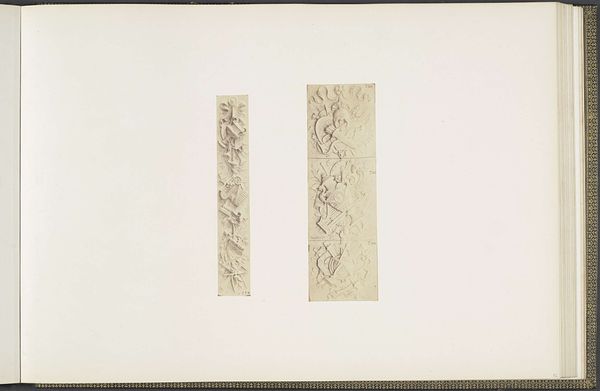
drawing, print, relief, paper, photography
#
drawing
# print
#
relief
#
paper
#
photography
#
ancient-mediterranean
Dimensions: height 142 mm, width 211 mm
Copyright: Rijks Museum: Open Domain
Edouard Baldus made this print of two reliefs from the Palais des Tuileries in Paris, using a photographic process called photogravure. The Tuileries Palace was a potent symbol of the French monarchy and later, of the French state itself. Built in the 16th century, it stood for centuries as a key site of power, from the reigns of kings to the upheavals of revolution. Baldus's image captures details of its architectural ornamentation. By documenting these elements, he engages in a wider cultural project of preserving and interpreting national heritage. Consider the historical context: this print was likely made in the mid-19th century, a time of intense debate about national identity and historical memory in France. The rise of photography allowed for a new kind of visual record. But the destruction of the Tuileries Palace in 1871 during the Paris Commune, adds layers of meaning, transforming Baldus's image into a poignant record of something lost. To understand this artwork fully, we can consult archives, historical documents, and studies of French art and architecture. These resources help us understand not only the image itself, but also its role in shaping cultural memory.
Comments
No comments
Be the first to comment and join the conversation on the ultimate creative platform.
